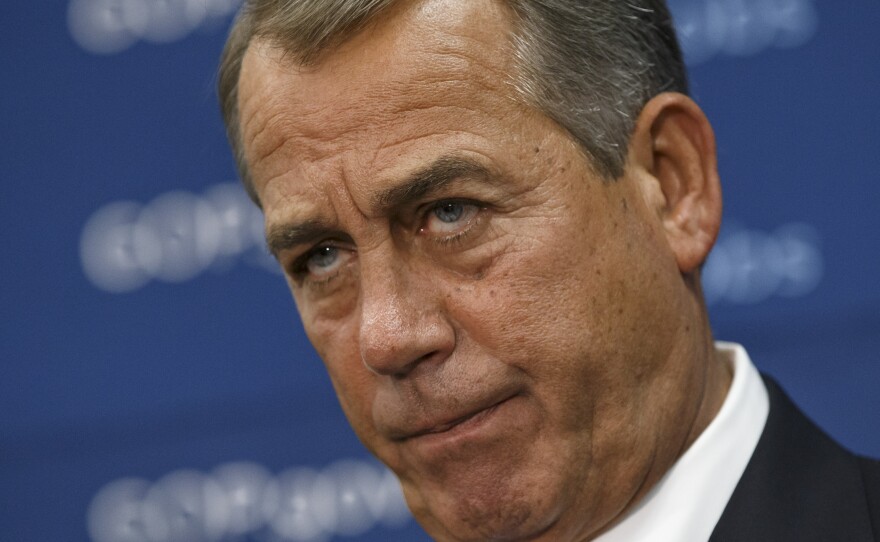The House on Wednesday passed a massive $1.1 trillion spending bill -- a compromise that appeared to get past the bitter partisan showdowns that have caused an unpopular federal government shutdown and nearly tipped the U.S. into default.
The 359-67 vote was a sign of considerable support from Republicans, thanks to a bipartisan deal worked out last month laying out spending for the next two years.
The 1,582-page bill eases most of the automatic spending cuts that were part of the so-called sequester and keeps the federal government funded through Sept. 30. It moves to the Democratic-controlled Senate for a final vote later this week.
As NPR's David Welna reports on Morning Edition:
"Unlike last fall, this time it's been a near certainty that Congress would not let the government shut down over disagreements on funding levels. Kentucky's Hal Rogers, chairman of the House Appropriations Committee, says his fellow Republicans have learned a lesson.
" 'The shutdown educated ... particularly our younger members ... about how futile that kind of practice is,' Rogers said."
As NPR's Ailsa Chang reported Tuesday, "One notable difference between this bill and the December deal involves cuts to military pensions. The budget agreement announced last month reduced the annual cost-of-living increases for military retirees under 62 by 1 percent. This spending plan reverses that cut, but only for disabled veterans and relatives of deceased members of the military."
The AP says:
"By its sheer size and detail, the measure had plenty for liberals and conservatives to dislike. Some Democrats said they would support it but only reluctantly, complaining that despite some increases, spending for education, health and other programs would still be too low.
" 'With this bill, we are waist deep in manure instead of neck deep in manure. Hooray, I guess,' said Rep. Jim McGovern, D-Mass."
Copyright 2014 NPR. To see more, visit www.npr.org.






